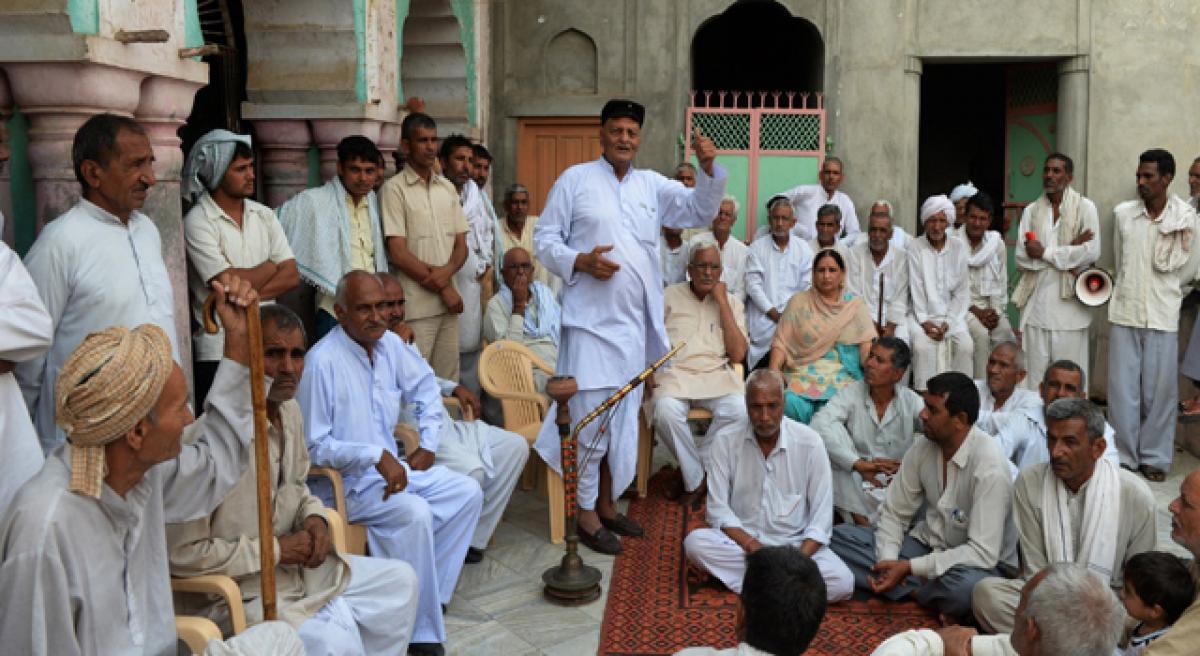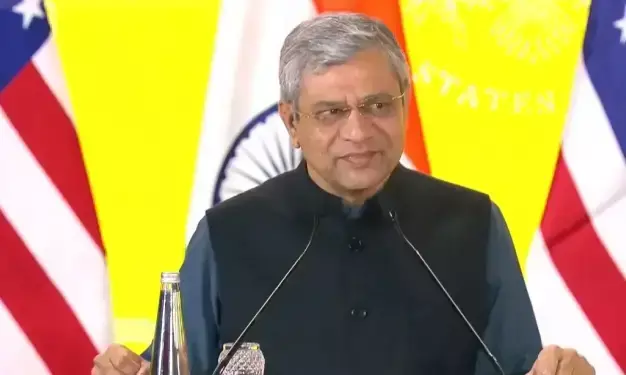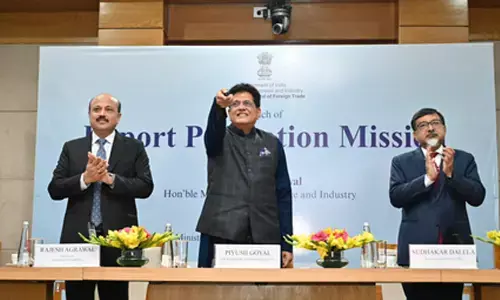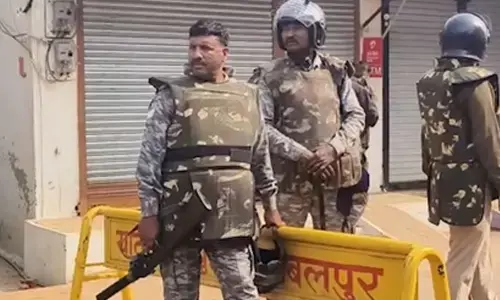All you need to know about Panchayats

Village level democracy became a real prospect for India in 1992 with the 73rd amendment to the Constitution, which mandated that resources, responsibility and decision making be passed on from central government to the lowest unit of the governance, the Gram Sabha or the Village Assembly.
Village level democracy became a real prospect for India in 1992 with the 73rd amendment to the Constitution, which mandated that resources, responsibility and decision making be passed on from central government to the lowest unit of the governance, the Gram Sabha or the Village Assembly.
A three tier structure of local self government was envisaged under this amendment. But the laws do not automatically cover the scheduled areas. The P.V.NarasimhaRao government appointed a committee headed by Mr.Dileep Singh Bhuria, MP, in June 1994, to work out the details as to how structures similar to Panchayati Raj Institutions can take shape in Tribal Areas and Scheduled Areas and to define their powers. The Committee submitted its report in January 1995.
The Bhuria Committee recommended a three-tier structure of self-governance in the tribal areas: (1) Gram Sabha - Every “habitation community” to have a Gram Sabha which willexercise command over natural resources, resolve disputes and manage institutions under it like schools and cooperatives.
Based on this committee recommendations the PESA act was enacted on 24 December 1996 to enable Tribal Self Rule in the theseareas. Article 244(1) of the Indian Constitution deals with Provisions as to the Administration and Control of Scheduled Areas and Scheduled Tribes.
The expression “Scheduled Areas” means such areas as the President may by order declare to be Scheduled Areas.At present, nine states have Fifth Schedule Areas. These are: Andhra Pradesh,Chhatisgarh, Gujarat, Himachal Pradesh, Jharkhand, Madhya Pradesh, Maharashtra, Odisha and Rajasthan.(Telangana yet to submit the list ofScheduled areas tothe President).
The PESA Act extended the provisions of Panchayats to the tribal areas of nine states that have Fifth Schedule Areas.The fundamental spirit of the Panchayat Extension Act for tribal areas under 5th Schedule is that it devolves power and authority to Gram Sabha and Panchayats rather than delegation; hence it paves way for participatory democracy.
PESA empowered gram sabha of the Scheduled Areas to approve plans, programmes for social and economic development, identify beneficiaries under poverty alleviationprogrammes, certify utilization of funds by gram Panchayats, protect natural resources, including minor forest produce and be consulted prior to land acquisition.Provisions under PESA include the following. 1. Gram sabha at the para, majra and tola levels 2.
Gram sabha to protect the traditions, beliefs and culture of the tribal communities 3.Local disputes to be resolved by the gram sabha 4. Gram sabha to manage and protect common properties based on their traditional systems of management and protection 5.
The administration to seek permission from the gram sabha in case of land acquisition 6.Gram sabha to have the rights over minor forest produce; powers to restore land to the tribals; and control over money-lending to tribals, tribal welfare activities by social organizations and local plans and sub-plans for the development of tribal areas and communities 7.
Gram sabha to have the control over local markets and melas 8.Gram sabha to have rights to control the distillation, prohibition and manufacture of liquor. 9. District panchayats to have rights and powers similar to the district panchayats falling under Sixth Schedule.
A limitation of the PESA law is that it is applicable only to those areas which are legally regarded as Scheduled Areas. A significant number of tribals living outside the scheduled areas are not covered by this legislation.
Parliamentary privileges
To enable Parliament to discharge functions properly the Constitution confers on each member of the Houses certain rights and immunities and also certain rights and immunities and powers on each house collectively.
Parliamentary privilege is an essential incident to the high and multifarious functions which the legislature is called upon to perform. Art 105 of the Indian Constitution deals with parliamentary privileges of both Houses of Parliament and of their members and committees.
Article 194, which is an exact reproduction of Article 105, deals with the State Legislatures and their members and committees.Two privileges, namely, freedom of speech and freedom of publication of proceedings, are specifically mentioned in clauses (1) and (2).Article 105, clause (1), expressly safeguards freedom of speech in parliament.The freedom of speech guaranteed under clause (1) is different from that which a citizen enjoys as a fundamental right under Article 19 (1) (a). the freedom of speech as a fundamental right does not protect an individual absolutely for what he says.
The right is subject to reasonable restrictions under clause (2) of Article 19 but under Art 105no action, civil or criminal, will therefore lie against a member for defamation or the like in respect of things said in parliament or its committees.
The immunity is not limited to mere spoken words; it extends to votes,for notices of motions, questions, reports of the committee, or the resolutions.
Clause (2) of Article 105 expressly declares that no person shall be liable in respect of the publication by order under the authority of a house of Parliament, of any report, paper, votes or proceedings,unless it is proved that the publication is made with malice.
What is office of profit
Article 102 of the Constitution of India enumerates six grounds for disqualification of a MP from membership of the Parliament. Article 102(1)(a) which lays down “office of profit” as a ground for disqualification,the disqualification is the result of breach of the theory of separation of powers (a basic feature of the Constitution) which underlies sub-clause (a) of the said Article.
This rule is not, however, without exception. Sub-Clause (a) of the said Article itself carves out an exception by empowering the Parliament to declare (by law) certain offices of profit as exempted from the operation of Article 102(1)(a).The Supreme Court(SC) of India has offered an explication of the term “office of profit” and the principle underlying it in umpteen cases.
The same has been reiterated in the case of Jaya Bacchan v. Union of India 2006,JayaBachhan was disqualified from the membership of RajyaSabha on the ground that she held the position of Chairperson of Uttar Pradesh Film Development Corporation.
SC dismissed the challenge of jayabacchan to the disqualification order holding it was immaterial whether the person actually received any remuneration or pecuniary gains from the office but the very fact that the person held the position was a valid disqualification from holding the position.
In Satrucharla’s case, the SC has summarized the tests or principles, to determine whether or not a person holds an office of profit under the government.
By: Balalatha Mallavarapu








